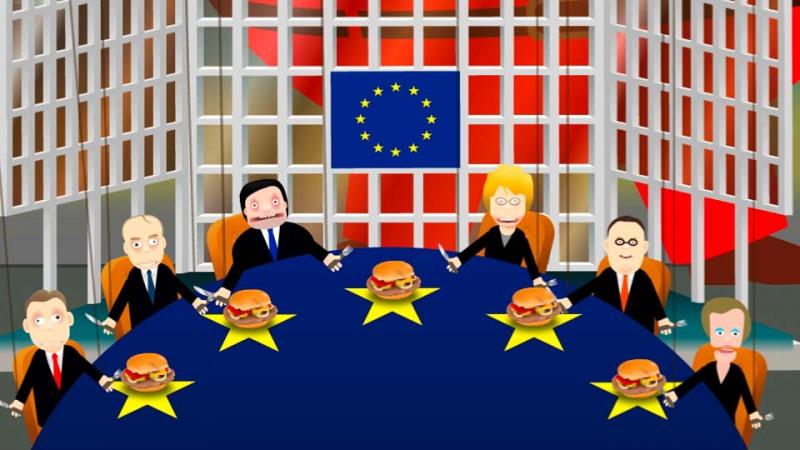
EU Ombudsman: EFSA fails on conflict of interests
PRESS RELEASE BY CORPORATE EUROPE OBSERVATORY AND TEST BIOTECH
European Food Safety Authority mishandled a major revolving doors case with biotechnology company Syngenta
Brussels/ Munich 29.5.2013 - In a May 23d ruling, the EU Ombudsman stated that EFSA (European Food Safety Authority) failed to take adequate measures to prevent conflict of interests arising from a major 'revolving doors' case in 2008. According to the Ombudsman's conclusions, EFSA “failed to fulfil the procedural obligations emanating from the applicable rules” and did not “acknowledge its failure to observe the relevant procedural rules and to carry out a sufficiently thorough assessment of the potential conflict of interests (…).” Furthermore “EFSA unduly restricted the scope of what might amount to a possible conflict of interest (...).”These statements relate to the case of Dr Suzy Renckens, who was head of EFSA´s unit responsible for the risk assessment of genetically engineered plants from 2003 till 2008 before moving directly to a top EU lobbying position at Syngenta, a company that produces and markets these very plants.
Martin Pigeon, researcher and campaigner at Corporate Europe Observatory, said: “this highly symbolic case reminds everybody how strategic EFSA is for the agrofood industry, and how weak EFSA's independence policy remains. The agency's management of this case shows that it failed to take the crucial issue of corporate influence seriously, an inexcusable failure for a body supposedly 'commited to ensuring that Europe's food is safe'. Does EFSA have the means of its remit?”
Testbiotech brought the Renckens case to public attention in 2009 but EFSA and the EU Commission refused to take any action. Therefore, Testbiotech, with the support of Corporate Europe Observatory (CEO), asked the EU Ombudsman to investigate the case. The EU Ombudsman sent a series of first recommendations in 2011, stating that EFSA did not handle this case correctly. EFSA then changed its rules and procedures in December 2011 to strengthen its independence, but, according to the Ombudsman ruling published last May 23 (see bottom), the Ombudsman clearly sees need for further improvements. With his judgement, the Ombudsman fuels concerns about EFSA´s independence policy which were already expressed in a report from the European Court of Auditors published in October 2012, as well as two resolutions from the European Parliament in 2012 and 2013 in the framework of the budget discharge process.
“EFSA seems to not be able to solve its problems with conflict of interests. For example, the authority still lacks sufficient standards in its relationship with the industry think tank International Life Sciences Institute (ILSI). After criticism from many sides, experts working with ILSI are now mostly excluded from being involved in the work of EFSA; but experts who worked with ILSI for many years and then officially ended their cooperation still are decisive for EFSA´s scientific work.” says Christoph Then for Testbiotech. “All the key decisions and risk assessment protocols that were influenced by ILSI´s experts in the last ten years were never re-evaluated.”
For instance, Juliane Kleiner just became EFSA's Director of Science Strategy and Coordination. Kleiner joined EFSA right after a career at ILSI between 1997 and 2004. Gijs Kleter, who officially worked with ILSI from 2002-2007 on risk assessment of genetically engineered plants, is now the vice-chair of EFSA´s expert group on genetically engineered organisms (“GMO Panel”). Harry Kuiper was the chair of EFSA´s GMO Panel from 2003 to 2012 and in parallel a member of ILSI working groups for several years, but the standards and decisions he was responsible for were never re-assessed by EFSA. His case was also brought up by Testbiotech in a complaint to the EU Ombudsman that is still pending.
